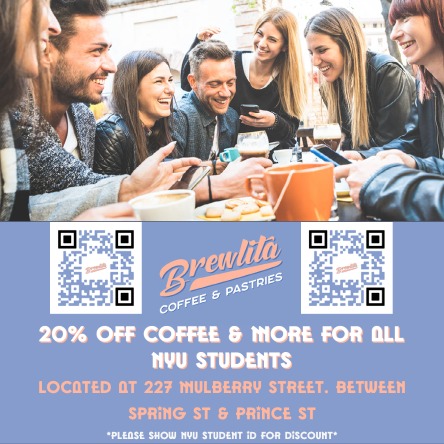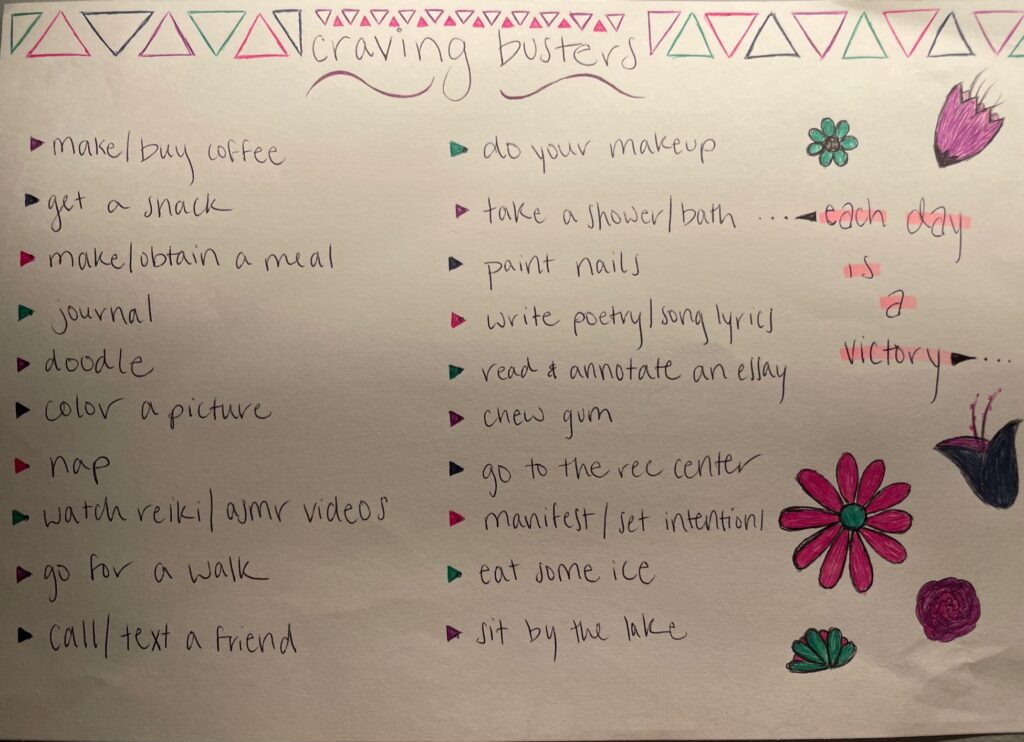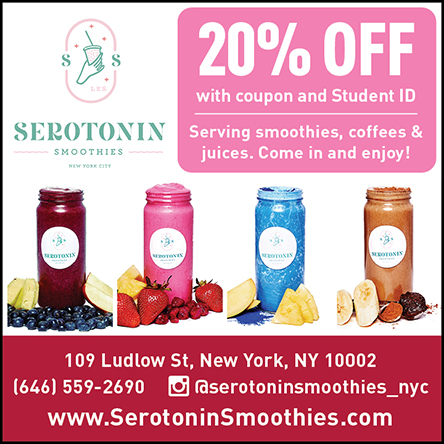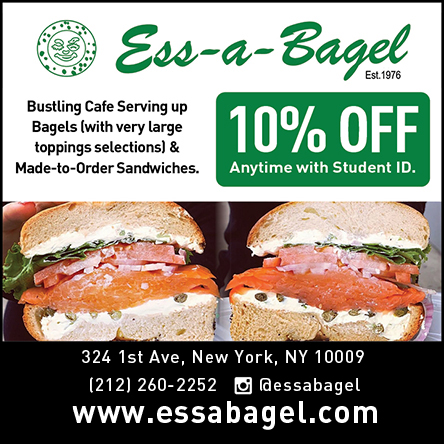We’re listening to a song in their room. I haven’t heard it before, but I know the band. It’s starting off really slow, quiet. We talk over the building music, about who knows what. With a crescendo and a great rush, the song blooms around us, sending shivers down my spine and tingles through my chest. The feeling is familiar, and I’m left speechless, awestruck by the music’s impact. My friend sees my reaction, and they grin. “The natural dizzy.” I don’t remember which of us said it, but I knew it was true. The “dizzy” had come to me, no nicotine necessary. When the song ended, we played it again.
This remains one of my favorite songs of all time; it will always hold a special place in my heart.
We all have habits. Having control over the habits we choose to put time, energy, and money into is vital. Habits, however, are very difficult to change, as Charles Duhigg points out in “The Power of Habit.” Some habits can be reasonably easy to replace, when working with the same routine for a new reward or ridding your life of certain triggers to keep away from the habit altogether. Nicotine was definitely not easy to replace, but the coffees, manicures, and other treats I buy for myself help offset the frustration of being without nicotine. Another element that eased my quitting was my discovery of the natural “dizzy.” Music has always deeply affected me, especially live performances at concerts or musical theater productions. When I was giving up nicotine forever, I knew the “dizzy” would be the hardest thing to let go of. The physical feeling nicotine gives a person is what really keeps them hooked, and my usage of the “dizzy” as a reward made it extra difficult to consider living without it for the rest of my life. When I found that live musical experiences, certain songs, and even particular melodies and harmonies could give me that physical, tingly experience that nicotine once provided, I realized I just needed to change how I sought out the “dizzy.” If I searched for the natural “dizzy,” the one you can find while your favorite band plays or at the closing number of Wicked or on a car ride with friends, that would keep me away from the chemical “dizzy” I had become reliant upon. Nicotine always left me wanting more; the new “dizzy” is more reliable. Satisfying and wholesome and, in some cases, free of charge!
I’m seated next to a girl who wishes she had a vape. I do too, honestly, but I suddenly feel resolved. It’s not solidarity; it’s support, encouragement. I’d met her an hour earlier. I tell her, “You can quit if you want to.” Maybe it’s hypocritical of me to say so, but I say it anyway. “I’m serious. You have the strength to quit.” She nods, smiles. I think my words make us both feel a bit better.
Offering support to others has really helped me to remain strong in my efforts to be nic-free. If a friend complains that they’re fiending for a vape, I’m already offering suckers, gum, something to hold that will keep their hands busy. This doesn’t always help, nor does it ever really solve anything, but I think assisting someone in avoiding nicotine for even an hour is an accomplishment.
Even though I’ve been completely nic-free for over 3 months, I still get cravings for a cigarette every so often. When the scent of cigarette smoke wafts through the drive thru of the coffee shop where I work, I can’t deny the annoyance I feel. I still find myself digging in my purse for a piece of gum when friends have their vapes. It gets easier, but I don’t think the inner struggle will ever disappear. My confidence, however, never ceases to grow. I know I made the right choice, and I’m proud of myself every single day.
Some people will always vape. They won’t see anything particularly harmful or wrong about it, so they’ll continue to allow it in their life. It will remain one of their habits. I respect that. We all have habits; we all have addictions. Some habits are worse than others and, in the grand scheme of things, vaping isn’t that awful. It’s less obnoxious and dangerous than smoking cigarettes. It can bring about joy, satisfy the desire for nicotine. I get it. For me, the issue was I knew it wasn’t good for me. It drained my bank account, hurt my throat and lung capacity, and I couldn’t stop thinking about it. I’d lost control. So, I made the choice to quit and pushed through powerful cravings to be free from the addiction. It wasn’t easy, and I can’t fault people for not going through with it.
There are lots of reasons people do addictive things. We all have desires for things we maybe shouldn’t have. My advice? Find something addictive AND good for the soul. Something that doesn’t cost $20 every 3-4 days.

Sophie Rounds is a rising junior at Loyola University Chicago, double majoring in creative writing and Spanish. She loves to read and wishes she were a better cook. When she is not reading or writing, she enjoys singing in several choirs at her university and thrifting with her friends.
For over 20 years, the Campus Clipper has been offering awesome student discounts in NYC, from the East Side to Greenwich Village. Along with inspiration, the company offers students a special coupon booklet and the Official Student Guide, which encourages them to discover new places in the city and save money on food, clothing, and services. At the Campus Clipper, not only do we help our interns learn new skills, make money, and create wonderful e-books, we give them a platform to teach others. Check our website for more student savings and watch our YouTube video showing off some of New York City’s finest students during the Welcome Week of 2015.








